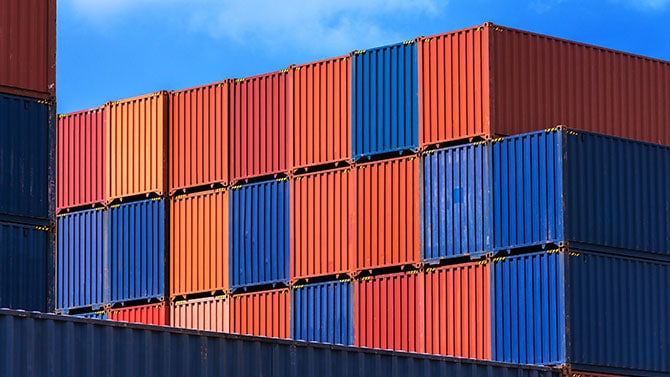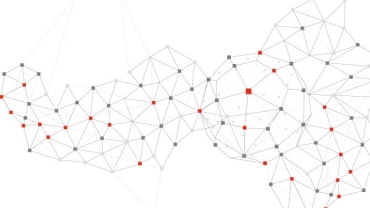
Brexit: The end of the transition period is getting closer – be ready for 1 January 2021
21/10/20
The current Brexit transition period, where goods can still be shipped tariff free and without import and export formalities from the EU mainland to the UK and vice versa will end on 31 December 2020. From 1 January 2021, EU - UK trade will be subject to customs formalities and the UK leaving the PEM zone will have an impact on preferential origin calculations.

What does this mean for your business?
In case your business or your customer imports goods into the UK, the UK customs tariffs and other potential import restrictions will be applied on these products. On the export side, your business or your supplier will have to perform customs formalities exiting the UK and import formalities when entering the EU, which means an administrative burden and time delays at the borders.
Companies should therefore review what their potential exposure is in terms of duties and disruptions in the supply chain, especially since there is a significant risk that the negotiations between the EU and the UK for a Free Trade Agreement (FTA) will not be concluded in time.
UK Border Operating Model
On 1 January 2021 the transition period with the EU will end, and the UK will operate a full, external border as a sovereign nation. This means that controls will be placed on the movement of goods between Great Britain and the EU.
To allow businesses extra time to make necessary arrangements, the UK Government has taken the decision to introduce the new border controls on imports in three stages up until 1 July 2021. A guide on importing and exporting goods has been published by the UK Government (updated 8 October 2020). The stages of introducing border control are:
- Importing Stage 1 / January 2021: for controlled goods (i.e. goods with import restrictions and excise goods), a full customs declaration must be submitted; for other goods the traders may make a record in their own commercial records at entry and submit a supplementary declaration within 6 months;
- Importing Stage 2 / April 2021: goods subject to sanitary or phytosanitary controls (i.e. animal and plant products) will have additional import requirements and checks placed on them;
- Importing Stage 3 / July 2021: full import customs declarations must be submitted for all goods at entry into UK.
In order to perform customs clearances (import and export), commodity codes and customs values of the goods as well as a GB EORI number will be needed (on the EU side another EORI number is required for export and import). In May 2020, the UK has published a list of its tariffs and import duty rates that will be applicable on goods imported into the UK. For goods originating from a country the UK has a Free Trade Arrangement with (e.g. Switzerland) and for which the criteria mentioned in the arrangement are met, preferential treatment may be granted.
One of the biggest concerns at the moment is the logistics readiness of the border infrastructures and the customs process parties on the UK or EU side on 1 January 2021. The customs officials as well as the involved third-party brokers and the IT systems might struggle with the expected high numbers of customs declarations and the physical infrastructures might not be ready to deal with the volume of shipments and vehicles for customs clearance.
Preferential origin challenges
The UK and the EU are currently negotiating a FTA with the aim to reach an agreement before the end of this year. If the negotiations will not be concluded in time or even fail, this will have an impact on the preferential origin calculation and the preferential treatment of goods in the EU and UK but also in partner countries of their mutual FTAs:
- Bilateral EU-UK trade: goods will become non-originating for preferential treatment and import duties will be due;
- Diagonal cumulation (e.g. FTA CH-UK / CH-EU): UK and/or EU content becomes non- originating for preferential treatment according to FTAs of which the supply country is not part of and therefore cumulation with this origin content will not be possible anymore.
HMRC Brexit Action list
In September 2020, HMRC sent a letter to every UK VAT registered business, outlining the 9 actions to be taken before 1 January 2021 by those trading goods with the EU in a post Brexit transition period.
Our colleagues from PwC UK have prepared a flyer regarding the measures outlined in the HMRC letter.
How can we help?
We are supporting clients to prepare for Brexit in a three-phased approach.
Assessment
PwC has developed a tool that can visualize the impact of Brexit on the business of your company based upon customs or Intrastat data. Through this tool we help you visualize and subsequently analyze the possibilities to mitigate the impact of Brexit. Of course, we can also help in analysing the impact on the current product portfolio of the loss of preferential origin status in case UK/EU products or components are used.

Mitigation & planning
A holistic view on planning is key to ensuring uninterrupted business operation after 1 January 2021. We help companies gradually increase their Brexit-readiness maturity and support them with considering actions to mitigate risks that arise from logistics readiness at the border. These include building up stock in the UK until 31 December 2020, identifying products that require special documentation and/or will be subject to high duties and defining milestones to meet the three-staged approach of Brexit implementation.
Implementation
Companies often face challenges with implementation of process and system related changes. In the case of Brexit, the company’s interaction with multiple external parties, such as suppliers and customs brokers will add another layer of complexity. PwC supports businesses with developing standard operating procedures, building up a responsibility matrix, testing broker and logistics provider collaboration, identifying all information necessary for the broker to file the declarations, and adjusting ERP or global trade management systems to support the change. Our track record of Brexit projects enables us to pinpoint the main development areas and to channel your focus to significantly increase your Brexit readiness by the end of the year.
Contact us

Simeon L. Probst
Partner, Customs & International Trade, PwC Switzerland
Tel: +41 58 792 53 51




















